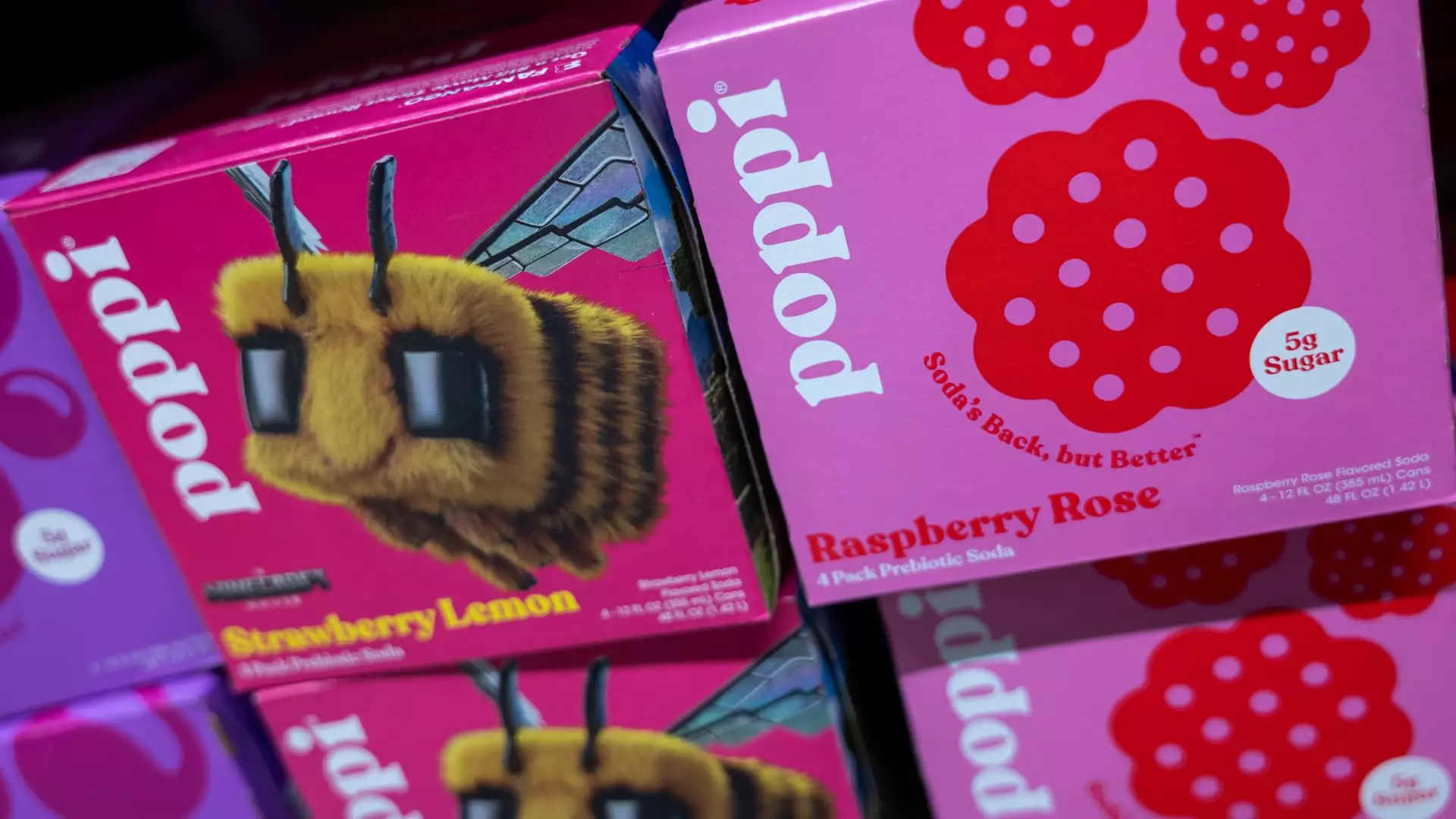In an era where traditional soda sales are in decline, PepsiCo’s announcement of acquiring Poppi for approximately $1.95 billion is nothing short of revolutionary. The past couple of decades have witnessed a significant downturn in soda consumption in the United States as health-conscious consumers increasingly opt for beverages that align with their wellness goals. Yet, amidst this decline, prebiotic sodas have emerged as a beacon of hope in the beverage industry. Brands like Poppi and Olipop have skillfully tapped into the growing health trend, positioning themselves as alternatives that resonate with those seeking functional beverages over sugary, carbonated drinks.
Pricing the Future of Health Trends
The strategic acquisition of Poppi by PepsiCo was not merely about expanding its beverage portfolio; it represents a calculated move to reshape the company’s market presence. With a staggering $300 million in anticipated cash tax benefits, the actual net cost of this acquisition stands at approximately $1.65 billion. This financial engineering isn’t merely about acquiring revenue. It positions PepsiCo at the forefront of the burgeoning health-oriented beverage sector. The question, however, remains: Is this growth sustainable, or is it merely a fleeting trend buoyed by consumer fads?
The Poppi Phenomenon
Founded in 2018, Poppi has gained impressive traction in a saturated market, crossing annual sales of $100 million by 2023. Its unique formula, which combines apple cider vinegar with prebiotic properties, captivates the taste buds of health enthusiasts. However, this rapid ascent has not come without complications. Poppi recently faced legal troubles stemming from a class action lawsuit that raised concerns over its health claims. They ultimately agreed to settle for $8.9 million, raising questions regarding their marketing practices and consumer trust.
It’s troubling that, despite its success and growing brand awareness, Poppi’s claims are under scrutiny, a concern that could undermine long-term growth. The beverage industry thrives on image and perception; any hint of impropriety can lead to a ripple effect that devastates brand loyalty.
Competition and Market Positioning
PepsiCo is not alone in recognizing the potential in the prebiotic drink market. With Coca-Cola also launching its own prebiotic soda brand, Simply Pop, it’s evident that the competition is heating up. Brands like Olipop are gaining valuations upwards of $1.85 billion, making it clear that PepsiCo’s purchase isn’t a standalone move, but part of a larger chess game in the health beverage arena. As soda giants increasingly pivot towards functional beverages, the stakes are higher than ever.
However, the risk lies in consumer fatigue. The beverage market can be fickle, and while current health trends favor prebiotic sodas, the next big thing might be just around the corner. This acquisition might benefit Pepsi in the immediate future, but it must also focus on strategic marketing that emphasizes transparency and trustworthiness—essential components to fostering a loyal customer base in today’s informed consumer landscape.
In essence, while PepsiCo’s acquisition of Poppi is an audacious step into an evolving market, its real test will be maintaining relevance in a rapidly changing consumer environment.

